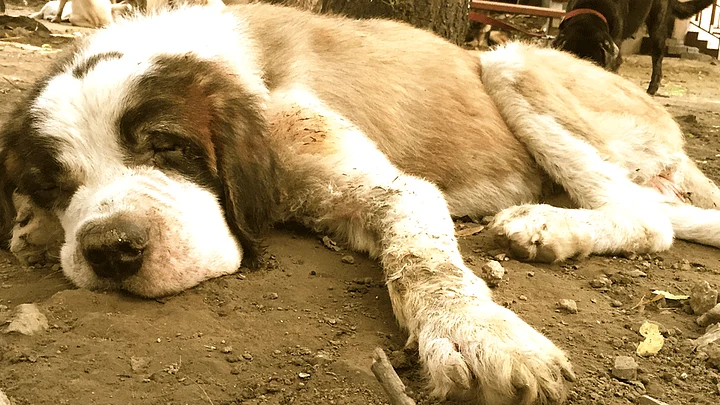Why is Friendicoes in Debt?
For 36 years, Friendicoes has been home to abandoned, injured, distressed and handicapped animals. All animals. Since 2003, the Municipal Corporation of Delhi (MCD) has worked with Friendicoes in sterilization and vaccination campaigns. Even Delhi Traffic Police calls them to take away injured animals from the roads.
The NGO is now fighting for survival, in debt to the tune of 82 lakh rupees, of which, 38 lakhs are outstanding dues from MCD.
The Defense Colony facility of Friendicoes is full of dogs mainly, many with geriatric problems and maggot wounds.
The reason we are facing such a crunch is because Friendicoes has no walls, literally and physically. We never say no which is why we have stretched ourselves way beyond our means.
–Geeta Sheshamani, Vice President, Friendicoes
Why We Need Friendicoes & More
The Friendicoes Society for Eradication of Cruelty to Animals (SECA) has launched an online campaign seeking help from animal lovers. The response has been phenomenal, say Friendicoes staffers; their online campaign has raised 16 lakh rupees in just two days. The NGO charges a registration fee of Rs. 100 and a treatment fee, but it is free for those who can’t afford it.
If you see an injured animal on the road, where else are you going to take them but here? Friendicoes responds to over 900 distress calls in a month.
–Pia Sharma, Friendicoes
Apart from the shelter in Defence Colony, Friendcoes has another permanent shelter in Gurgaon that handles 2000 animals. It also runs an OPD clinic, two animal birth control centres (ABC) in East and West Delhi and two hospitals in Ghazipur. The NGO works in Faridabad, Ballabgarh, Vrindavan, Mathura, Jewar, Tappal, Bharatpur and even Agra.
Animals and Legislation in India
At a time when dog culling in Kerela is making headlines, for Friendicoes to be facing the threat of closure suggests serious rot in the system. Is India indifferent and apathetic towards animals? Geeta insists that we have one of the most progressive legislations in the world which takes into consideration public health, human welfare and animal rights. So where are we going wrong?
Our national policy is not for culling, our policy is for sterilization, vaccinations and community pets. Onus is on local bodies like municipalities to partner with NGOs for this. But they don’t pay and claim they lack space. There are 72 animal husbandry hospitals lying locked in Delhi alone. Even if they open up 10, imagine what we can achieve. There is no dearth of NGOs, but they have backed out because of non-payment.
–Geeta Sheshamani, Vice President, Friendicoes
Rakesh Shukla, founder of the world’s largest citywide dog rescue in Bangalore, The Voice of Stray Dogs, concurs.
Wildlife conservation is glamorous. There is a lot of funding, foreign and government for saving Tigers, but nobody cares about street dogs. We need a system, technology and accountability.
–Rakesh Shukla, Founder, The Voice of Stray Dogs, Bangalore
Animal right’s activist, Rishi Dev believes our Constitution is not for culling. It believes in ‘ahimsa’, and dignity, even for animals -
Article 48A guarantees protection and improvement of environment and safeguarding of forests and wild life.
Article 51a(g) seeks to improve lakes, rivers, forests and wildlife and to have compassion for living creatures.
In 2009, Supreme Court stayed a Bombay High Court order that gave discretionary powers to the Commissioner to ‘deal with’ the ‘nuisance’ of stray dogs. Justice Deepak Mishra ruled that nuisance is a subjective term and there shall be no killing. So clearly, the constitution and law is against culling.
–Rishi Dev, Animal Rights Activist
(Video editing by Purnendu Pritam)
